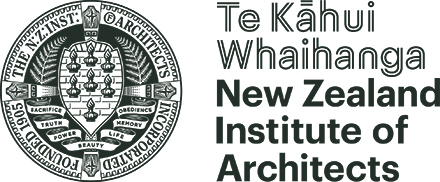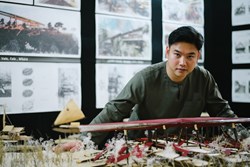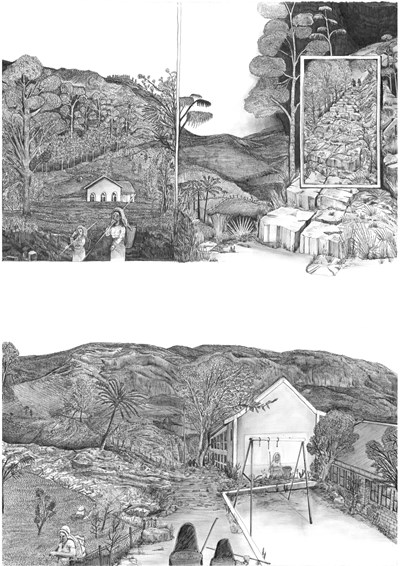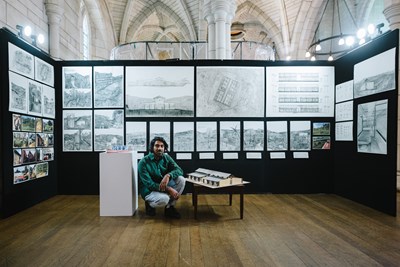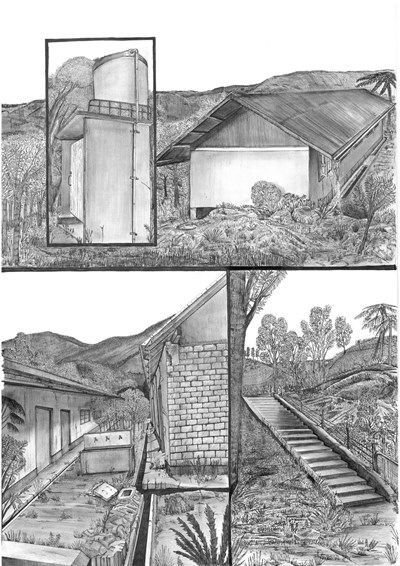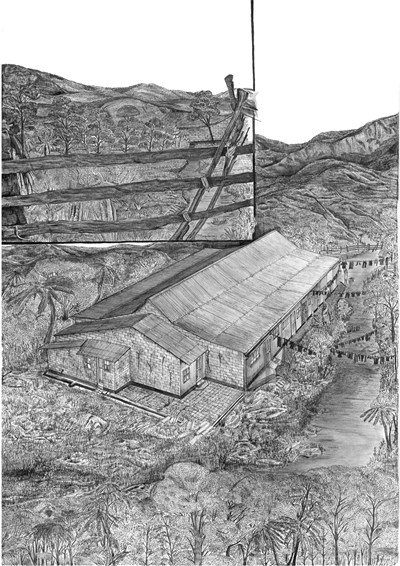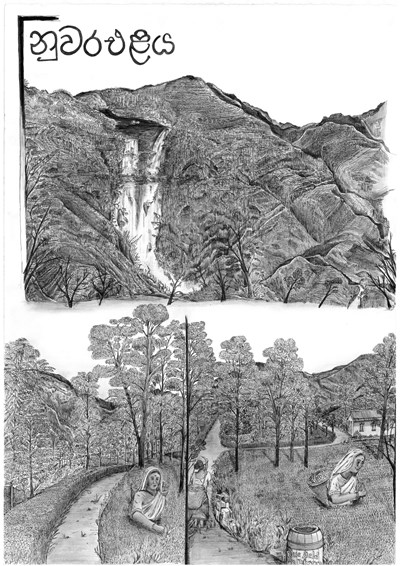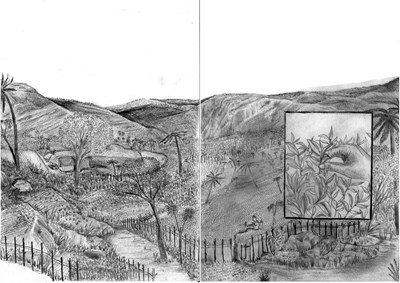Dimitri Thamel of Te Whare Wānanga o Wairaka, Unitec, School of Architecture, was highly commended at the 2020 Te Kāhui Whaihanga Resene Student Design Awards for his project '"The Boneva" (To Drink Tea)'.
Project description
In 2018 I encountered a community of tea workers in Bluefield Tea Plantation, Ramboda, while visiting the tea fields in Sri Lanka. I asked to see the worker housing and discovered a community of Indian-origin Tamil migrant workers made up the majority female labour force in Bluefield and across tea estates in central Sri Lanka.
These workers were originally Indian migrants who were promised job security, medical care, education, and regulated housing by the governing British in the late 1800s who sought to capitalise on the tea industry they introduced to Sri Lanka when it was a British colony. As a Sri Lankan, upon discovering the poor living conditions these workers endured with no reparations after hundreds of years of indentured labour, I was deeply affected.
“The Boneva” translates as "to drink tea". The project responds to the diverse community of Ramboda and looks at what architectural solution could remedy issues faced by workers, including a lack of dignity, voice and autonomy, as well as the fact that their housing ignores local building traditions.
The result is a relatively modest design in terms of spatial configuration and framework – including the use of low-cost vernacular material – but is complex in the ongoing social, political, cultural and economic barriers it must negotiate to be realised. The new design - being of a Sri Lankan vernacular typology - liberates the workers from the ghosts of colonial rule. My project is intended as a blueprint for other tea estates to follow, and a feasible way to replace the Line housing that still exists throughout Sri Lanka.
Judges' citation
After meeting Indian Tamil tea pickers who live in decrepit colonial line houses under indentured and engrained conditions of poverty in Nuwara Eliya, central Sri Lanka, Dimitri took their plight on as a very real personal project. By embracing vernacular housing typologies and getting to know how these work and live, all on the one site, Dimitri has truly placed the user at the centre of his project. Using simplicity of form, building methods and materials that could be learned and manipulated by the locals, Dimitri has created an architecture that provides healthy, dignified, flexible housing that also provides a canvas for the occupants to make their houses home. Dimitri’s drawings are exquisite and, combined with his empassioned storytelling approach, made this a deeply affecting project. We’ll never drink a cup of tea in the same way again.
